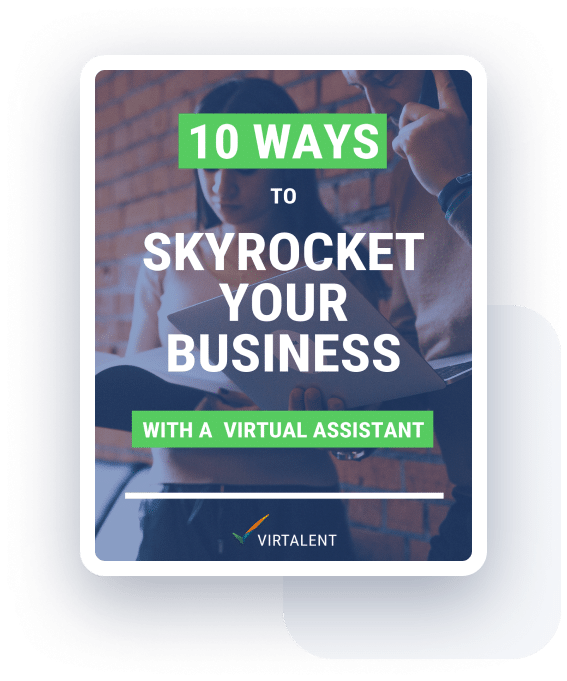Founders often battle more than just market competition and financial constraints, namely founder loneliness. While it’s certainly less talked about, isolation and loneliness that come with the role are very common.
And in the UK, with a busy and fast-moving business world and some more reserved notions of sharing, it can be hard to let people know when we are struggling with founder loneliness. It’s not uncommon for entrepreneurs to become a bit consumed by work and the relentless pursuit of success, meaning they frequently overlook the importance of social connections and personal well-being.
This blog aims to address this critical issue, offering practical and accessible strategies to help founders navigate the often solitary journey of building a business. Whether you're a startup veteran or new to the entrepreneurial scene, these tips provide support and foster a sense of community, ensuring that no founder feels they are in this alone.
1. Establish A Virtual Founders' Network
Establishing a virtual network of fellow founders can be a game-changer in an age where digital connections can be as meaningful as face-to-face interactions. For entrepreneurs who may find themselves isolated in their work, these online communities provide a valuable platform for support, advice, and networking.
Platforms such as LinkedIn and Meetup.com offer a wealth of groups and forums dedicated to entrepreneurs and startup enthusiasts. At these, you can connect with like-minded individuals who understand the unique challenges and triumphs of running a business or just share a hobby that you are passionate about. These networks are not just about professional networking; they are a space to share experiences and seek guidance. Meetup, in particular, allows you to take things to the real world.
Make sure to be proactive when you join a virtual community. Don’t just lurk in the background. Participate in discussions, offer insights, and be open to forming genuine connections. Remember, these relationships can provide business opportunities, moral support, and camaraderie.
2. Structured Time For Social Activities
As a founder, your diary is likely crammed with meetings, deadlines, and endless lists of tasks. However, it's super important to carve out time for social activities. Structuring your week to include regular social interactions can significantly reduce feelings of isolation. This doesn’t mean overcommitting to social events; it's about finding small, manageable ways to connect with others.
Joining a local sports club or a hobby group can offer an excellent physical and creative outlet. Whether it's a game of football, a book club, or a yoga class, these activities provide a chance to interact with others in a non-work setting. They also serve as a much-needed break from the digital world and give your brain time to process and be creative.
Remember, socialising doesn’t have to be tiring or time-draining. The goal is to find activities that you enjoy and that allow you to engage with others in a relaxed, informal setting.
3. Local Co-Working Spaces Vs Founder Loneliness
Co-working spaces are about shared office facilities and vibrant community hubs. For founders working alone, these spaces can be a lifeline, offering a sense of community and opportunities for networking. Across the UK, from London to Manchester, co-working spaces are tailored to suit various needs and preferences (and sometimes even have a very fancy coffee maker!)
When choosing a co-working space, consider the environment and the type of entrepreneurs it attracts. Many co-working spaces host regular social events, workshops, and networking sessions, which can be incredibly beneficial. Even if you don’t fancy being social, just the act of being in a space with other people can help with your feelings through the act of “body doubling”.
By becoming part of a co-working community, you combat loneliness and open doors to new business opportunities, collaborations, and friendships.

4. Engage In Mentorship (Either As A Mentor Or Mentee)
If you’re looking to stave off isolation but also give back somehow, then mentorship may be the answer. It’s a two-way street that can significantly reduce feelings of isolation for founders. By engaging in a mentorship relationship, either as a mentor or a mentee, you open up a channel for personal and professional growth, as well as social interaction. In the UK, there are several platforms where you can find mentorship opportunities, such as Mentorsme.co.uk and The Prince’s Trust.
As a mentee, connecting with a more experienced entrepreneur can provide you with invaluable insights and guidance, helping you navigate the complexities of business ownership. This relationship also brings a sense of belonging and support, knowing someone is there to offer advice and encouragement.
Conversely, as a mentor, you get the opportunity to give back to the startup community. Sharing your knowledge and experiences can be incredibly fulfilling and can also provide a new perspective on your own journey. It's a chance to connect with up-and-coming entrepreneurs and contribute to their success.
In any form, mentorship fosters a sense of community and belonging, which is essential in combating the isolation that often comes with entrepreneurship.
5. Prioritise Mental Health & Wellbeing
Not just as a founder but as a human being, it's important to acknowledge that feeling isolated can significantly impact your mental well-being. Remember that self-care is not a luxury but a necessity for entrepreneurs. This includes practices like mindfulness, regular exercise, and adequate rest.
Taking care of your mental health is not just about dealing with problems as they arise; it’s also about preventative measures. In fact, we are so passionate about it at Virtalent that we offer support through our Assist You programme, which is available to all our Virtual Assistants and clients.
Overcoming the isolation and loneliness often accompany the entrepreneurial journey and preventing them is important for your and your business’s long-term success. Following these simple steps and ensuring that you take the time to socialise, enjoy activities, and be present can make your world and life a bit easier. It can be easy to push these things off as unnecessary, but their impact compounds over time.
If you are still struggling to find the time to combat founder loneliness, why not consider seeking the support of a Virtual Assistant? It can help manage your workload, giving you more time to focus on building connections and taking care of your well-being. Contact us today to find the perfect assistant tailored to your business needs, and take the first step towards a more balanced and connected entrepreneurial life.







